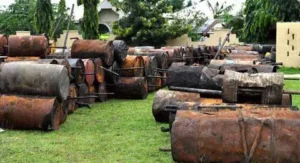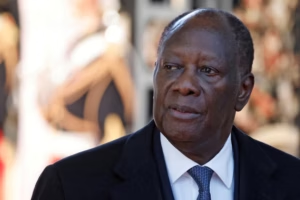
Ghana is going through its worst economic crisis in three decades.
To avert the sale of its commercial property in London, Ghanaian authorities must pay off a $140m debt awarded to Singaporean multinational Trafigura by the London Court of International Arbitration.
The judgement debt arose from the government’s termination of a written agreement with the Ghana Power Generation Company, whose majority shareholder is Trafigura, for the installation and operation of two emergency power plants in 2018.
The six-storey Regina House in Central London has been earmarked for garnishment to enforce the $140m arbitral award.
“I am embarrassed as High Commissioner for this thing to appear on the internet and be a subject matter of discussion in Ghana,†Papa Owusu-Ankomah, Ghana’s high commissioner to the UK, told Accra-based Joy News.
“I can assure you and Ghanaians that the Ministry of Finance has things well in hand. The creditors are interested in their money and it’s not going to be easy selling these properties, so it’s not as if tomorrow they are going to evict the Ghana High Commission and its staff from its premises, or the High Commissioner from his residence or tenants in Regina House.â€
In Ghana, civil society groups are riled up because this comes at a time when the West African country is going through its worst economic crisis in about three decades.
The government ignored their warnings about the repercussions of an abrupt contract termination with the company.
“Given how much debt the energy sector is saddled with, this $140m award is a lot of money. The whole situation could have been avoided because the contract termination wasn’t carefully thought through. It could have been deferred, rather than prematurely cancelled,†says Dennis Asare, a senior research associate at Accra-based think tank IMANI Africa.
He says there was no basis for the termination of the contract and blamed ill advice from the Attorney General’s department for the imprudent decision.
Analysts say Ghana has paid more than GH¢1.8bn ($152m) between 2000 and 2019 in judgement debts, most of which has arisen from contractual breaches that mostly coincide with change of governments.
Energy debt
Fears abound that the stalled Saltpond oilfield decommissioning project and the ENI/Vitol-Springfield Ghana unitisation order could result in other judgement debts after Ghana escaped a $50m claim laid by Beijing Everyway Traffic and Lighting Company Limited over the abrogation of their road traffic management system contract in January.
Ghana’s unsustainable national debt is largely driven by the energy sector, with a staggering $1.58bn owed to independent power producers.
After assuming office in 2017, the Akufo-Addo government cancelled 11 of the 43 power contracts inherited from the John Mahama administration – many of which were signed at the peak of the country’s power crisis between 2012 and 2016.
“Ghana needs a long-term power sector planning on demand and supplies because our short-term planning has led us to rely on emergency power which can be very expensive,†Asare tells The Africa Report.
For the executive director at the Institute for Energy Policies and Research, Kwadwo Poku, the $2bn energy sector debt has made the sector a high-risk area for investors.
He advocates for hiking consumer tariffs and reducing technical and financial losses within the value chain to address the growing debts in the sector.
“Ghana risks going back into a power crisis in three years because power demand will soon again outstrip supply and in the face of the huge debts, it will be hard to tackle,†Poku says.
“We need to be thinking of hiking tariffs to realistic rates and cut down on the technical and financial losses. We need to pay more for the luxury of never going back to dumsor (power outages).â€



